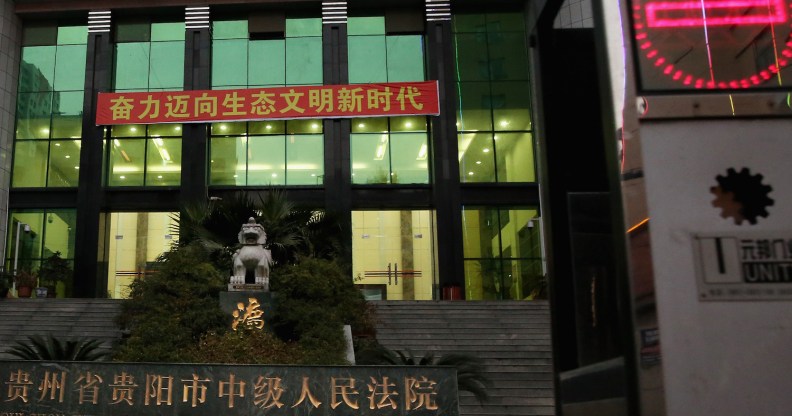Chinese court rules that man was illegally fired but not for being trans

A Chinese court has ruled that a transgender man was not discriminated against when he was sacked from his job.
The court in the province of Guizhou made the ruling in what is believed to be the first legal case involving alleged trans discrimination in the workplace.
In the ruling, the court said that the man had been sacked illegally from his job, but that there was no evidence that his sacking stemmed from anti-transgender discrimination.
The attorney for the unidentified plaintiff Huang Sha, told the New York Times that the result was “a little bit of a shame.”
The 28-year-old trans man was only identified in the media as ‘Mr C’ and was sacked from the Ciming Health Checkup Center in Guiyang, the capital of the province.
According to reports the man was sacked in 2015 after a week-long probationary period and later filed the court case in March 2016.
Mr C told spoke in an interview back in April to say that the human resources manager at the clinic had complained that he dressed like a gay man and that he looked “unhealthy”, rendering him ineligible for the position.
The case went to court after a local labour arbitration committee awarded Mr C 402.30 renminbi for a week’s pay – about $61 at the time.
He had appealed for an additional month’s pay of 2000 renminbi and also for the company to apologise for him.
After he took the case to court, the case was adjourned following an initial hearing in June.
Mr Huang had asked for documents provided by the centre should be examined, saying he suspected that they had been produced after the lawsuit had been filed.
The documents had claimed to provide evidence that Mr C had been sacked for failing to dress according to company standards as well as poor performance.
The Center of Forensic Science at the Southwest University of Political Science and Law later concluded that there wasn’t a way to authenticate the documents, and the ruling was issued by the court on 30 December.
The court ruled that the company must pay the 2000 renminbi, and that the company had failed to demonstrate that Mr C had been fired for fair reasons.
But the court also added that there was no evidence that his termination resulted from discrimination against trans people.
“This has demonstrated how low the cost of breaking the law is for employers… This is why the current job discrimination situation is so grim,” said the lawyer.
“This case also highlights the problem of ‘invisible discrimination,’ because employers can always claim they fired people for reasons other than the one they’re accused of,” he added.

